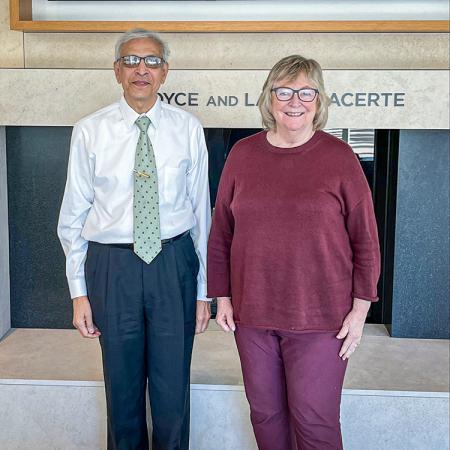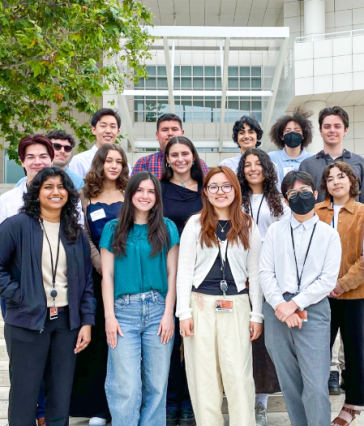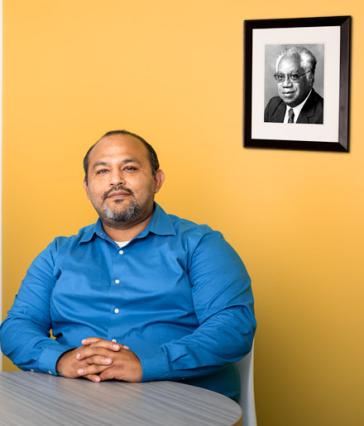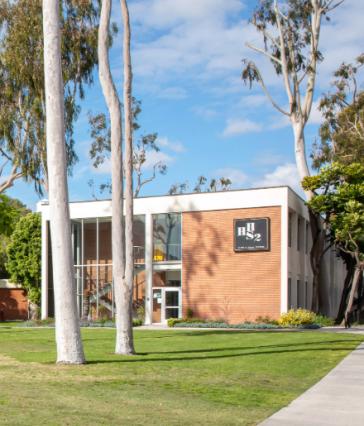CSULB introduces endowed chair in Jain studies
At more than 2,500 years old, Jainism predates Buddhism and is one of the world’s oldest religions. Those who follow the Jain faith – which originated in India – believe in nonviolence, detachment from excess wealth and possessions, and striving toward understanding all sides of an issue.
Now, students at Cal State Long Beach can learn more about Jainism, thanks to a recently created endowed chair of Jain studies. The Religious Studies department hired Professor Shivani Bothra to fill the position, making CSULB one of only two universities in the CSU system to have an endowed chair dedicated to Jain studies.
Bothra taught “Introduction to Jainism” in fall 2023 and will continue to teach Jainism during spring semester 2024. The endowed chair is named after Bhagwan Suvidhinath, the ninth tirthankara, who in Jain tradition, is someone who conquered the cycle of death and rebirth and became a spiritual teacher to others.

The position was made possible through funds donated by Dr. Jasvant Modi and the Shah Family Foundation, on behalf of Raksha and Harshad Shah.
“He is one of the personalities instrumental in bringing in funds,” Bothra said about Modi, a retired gastroenterologist living in Los Angeles. “CSULB has a lot of first-generation college students who are really keen to learn. It’s a great opportunity for our students to learn about Jainism and its values, and it’s so much more satisfying to see that.”
Modi – who has pledged millions to colleges and universities across the country to support Jain Studies – expressed hope that providing education about Jainism can not only raise awareness about the underrepresented religion, but also help spread the values of Jainism. Reflecting on the current state of the world, Modi said he “would like to see belief in nonviolence and if there is a difference of belief, respect other people.”
The teaching of Jainism and establishment of an endowed chair is a prime example of The Beach’s aim to elevate the community and advance the public good, a key priority of the comprehensive No Barriers fundraising campaign.
‘Living a more mindful life’
Founded in the sixth century B.C.E., Jainism has three principal tenets: ahimsa (nonviolence toward all living beings); aparigraha (non-materialism or non-attachment); and anekantavada (plurality of beliefs or open-mindedness). Jains pursue a spiritual journey toward Moksha, which is the state of complete liberation of the soul from the cycle of birth, death and rebirth.
Jains are vegetarian, avoid alcohol, tobacco and intoxicants, and most abstain from consuming root vegetables, such as potatoes, garlic and onions. This is to prevent injuring small insects and microorganisms, and to prevent an entire plant from getting uprooted and killed. Between 4 million and 5 million people worldwide follow the Jain faith, most of them in India.
“It’s important to consider Jainism, the South Asian tradition itself, and its embrace of nonviolence,” said Sophia Pandya, professor and chair of Religious Studies. “Look at any newspaper, there’s so much violence going on in the world. (Jainism) is an ancient tradition that has always advocated for a peaceful, pluralistic way of communicating and living with other beings – not just other human beings, but other animals and plants. These ideas are important for the environment, they’re important politically, for the future of humanity, in so many ways.”
Caitlin Below, a fourth-year student who took Bothra’s Jainism class in fall 2023, said she learned a lot about the ethics and philosophical aspects of Jainism, and how anyone can “adopt Jain principles and practice them, easily.”
“I resonated with absolutely a lot of the principles that we talked about, and by the end of the course, I definitely feel like it was very philosophically rich, and I got a lot out of the Jain philosophy,” said Below, a religious studies major.
Jainism is “definitely centered around living a more mindful life,” she said. “We need to be more mindful of our consumption, and everything you do has a cause and effect. At the very least, that could be such a critical component in (resolving) a lot of the horror that we see on a global level.”
Jainism was an important influence on Mahatma Gandhi, who espoused nonviolence in India’s efforts to end British colonial rule. Gandhi in turn influenced Martin Luther King Jr., who also embraced nonviolence as the means toward achieving equality during the American civil rights movement.
Jainism was also an influence on humanitarian and Nobel Peace Prize winner Albert Schweitzer, Bothra said, who was influenced by the Jain ethic of ahimsa, or nonviolence.
Bothra encourages students to take her Religious Studies 354 class, “Jain Worldview: Philosophy and Ethics,” during spring semester, which will include a site visit to the Jain Center of Southern California in Buena Park, as well as RST 490: “Nonviolence: A Survey of World Religions.”
She also invites students to learn more about Jainism by checking out the Jain collection in the University Library.
“Jainism has never started a war,” Bothra said. “Jains say that if we have understanding of our negative passions, and if we are able to conquer our negative passions – anger, ego, greed and deceit – then all these war-related situations would never even arise.”


















